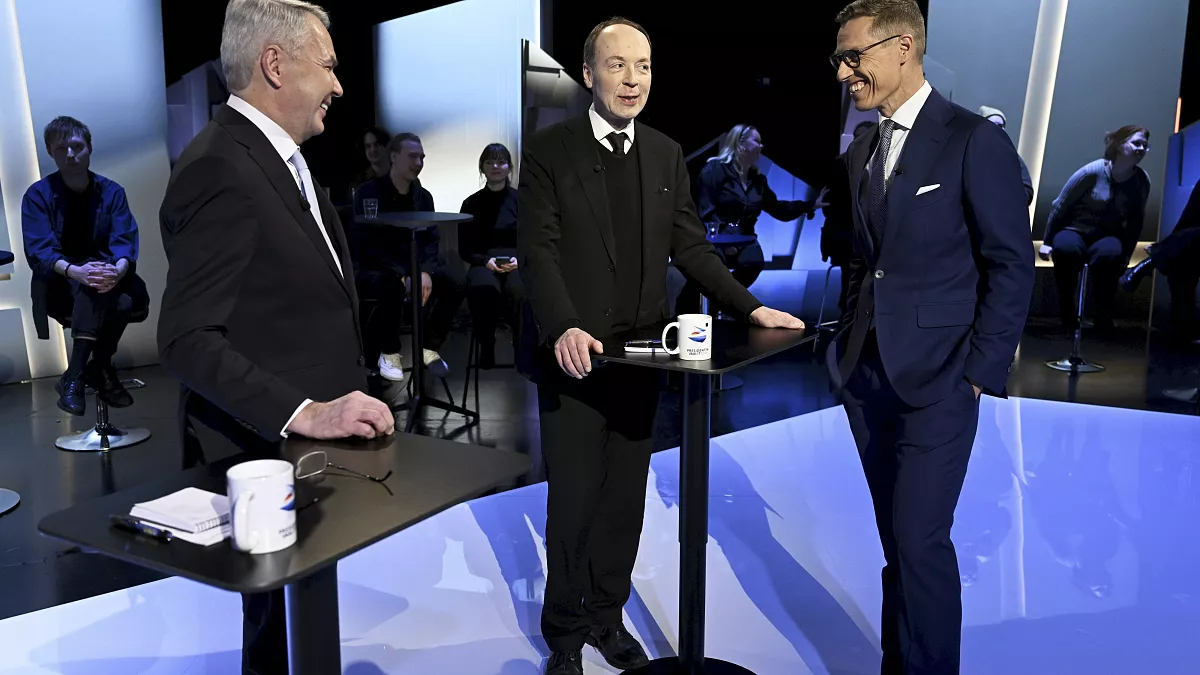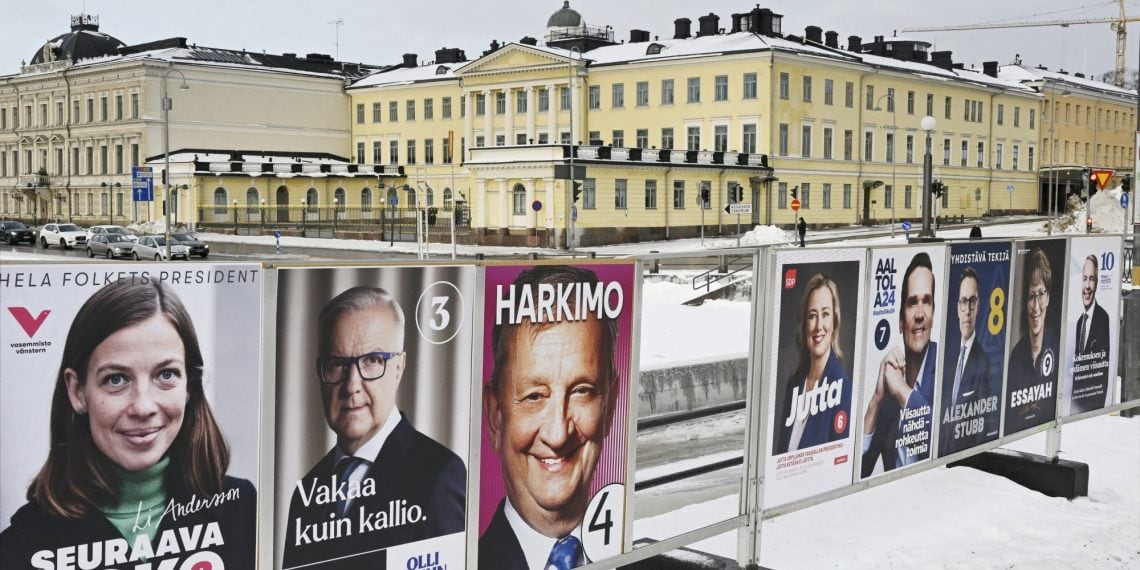In Finland’s upcoming presidential election, both remaining candidates champion pro-European sentiments and support for Ukraine amid a crucial era for NATO integration. Outgoing President Sauli Niinisto’s successor will navigate Finland’s NATO membership, a recent shift from decades of non-alignment prompted by Russia’s Ukraine invasion.
Former Prime Minister Alexander Stubb, representing the National Coalition Party, holds a slight lead over center-left liberal Pekka Haavisto, Finland’s ex-foreign minister. Stubb’s urban appeal and international outlook position him as the frontrunner, while Haavisto, vying for the presidency for the third time, could potentially make history as Finland’s first openly gay president.
Stubb’s campaign emphasizes broad appeal, pivoting away from previous EU federalism stances to maintain an “internationally oriented” platform. He advocates for deepening NATO cooperation and allowing nuclear weapons transportation through Finland, albeit not storage.
Conversely, Haavisto vows to uphold Finland’s nuclear-free status but faces scrutiny due to his sexual orientation, a factor influencing voter sentiment.
The candidates’ views on Finland’s NATO role spark debate. Stubb advocates for permanent NATO troop presence, aligning with a recent defense pact with the U.S., which grants military access and storage rights in Finland. Meanwhile, Haavisto remains cautious, expressing reservations about NATO’s military buildup near the Russian border.

The election’s dynamics also reflect concerns among nationalist Finns Party supporters, who may feel marginalized by the candidates’ internationalist stance. Jussi Halla-aho, eliminated in the initial round, garnered significant support but his absence leaves voters divided between Stubb and Haavisto, perceived as ideologically similar.
As Finland grapples with geopolitical complexities, the presidential race underscores the nation’s evolving foreign policy and its implications for European integration and NATO cooperation.




